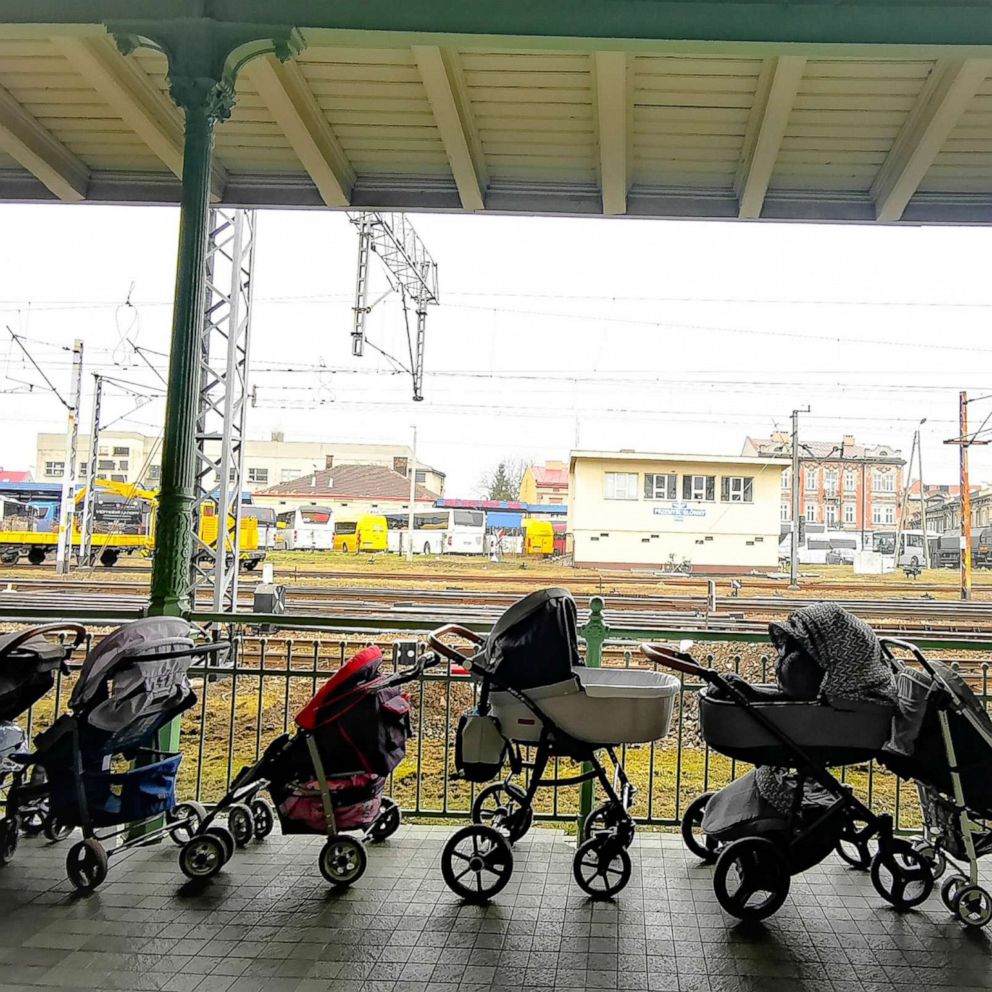Babies born to surrogates in Ukraine wait for parents in underground shelter
As attacks from Russia continue to escalate in Ukraine, one concrete bunker has become a nursery of sorts filled with nearly two dozen babies.
The babies, most of them newborns, were born to surrogate mothers in Ukraine, and now are unable to be reunited with their parents, who live in countries around the world.
They are being cared for nurses and caregivers who have stayed behind to care for them.
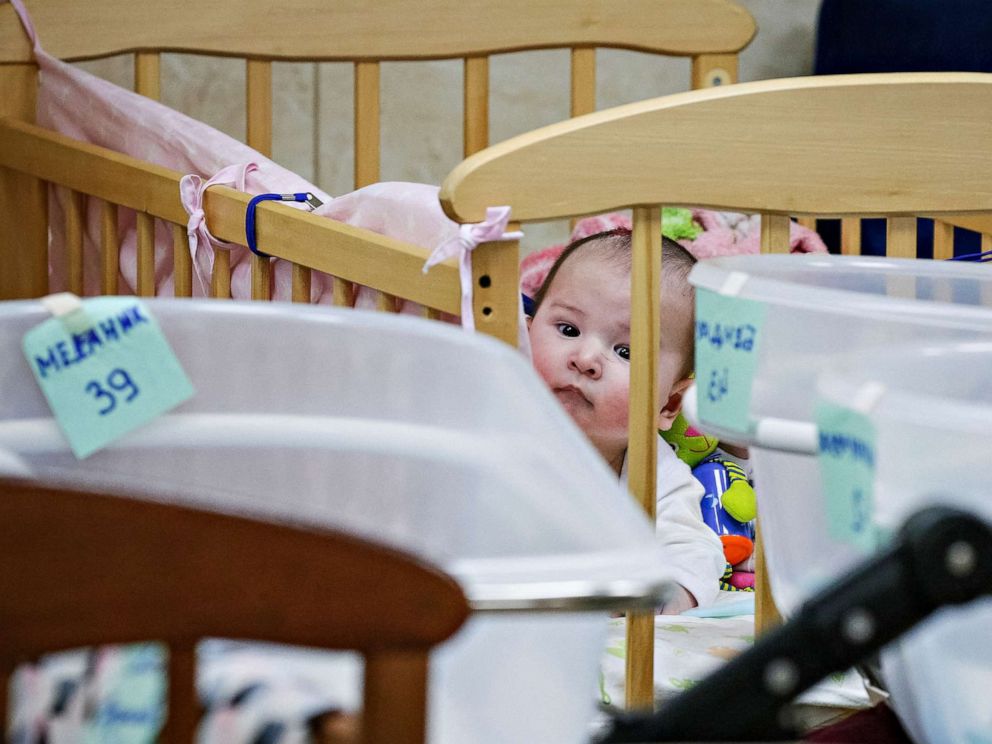
Together, they shelter in a basement of a building owned by BioTexCom, a fertility clinic, in Kyiv.
"We haven't been able to get home since Feb. 24," one of the nurses, Oksana Martynenko, told Reuters in an interview Tuesday inside the basement shelter.
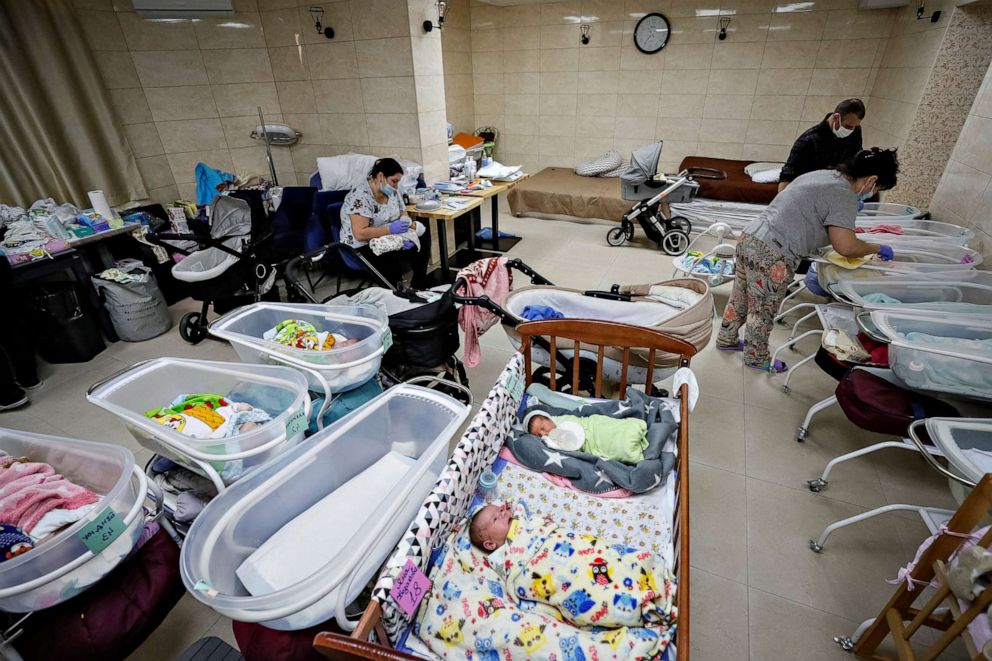
Martynenko told Reuters she has children herself at home in the Sumy region of Ukraine, but said she and other caregivers have stayed in Kyiv because, "We cannot leave these babies."
"It is not their fault that it happened," she told Reuters of the babies she cares for. "It is not their fault that parents cannot come to take them. So we stay here, we are coping and helping them with what we can."
More than 4,300 babies have been born in Ukraine since the conflict with Russia began, according to a March 6 Facebook post from Ukraine's Ministry of Justice.
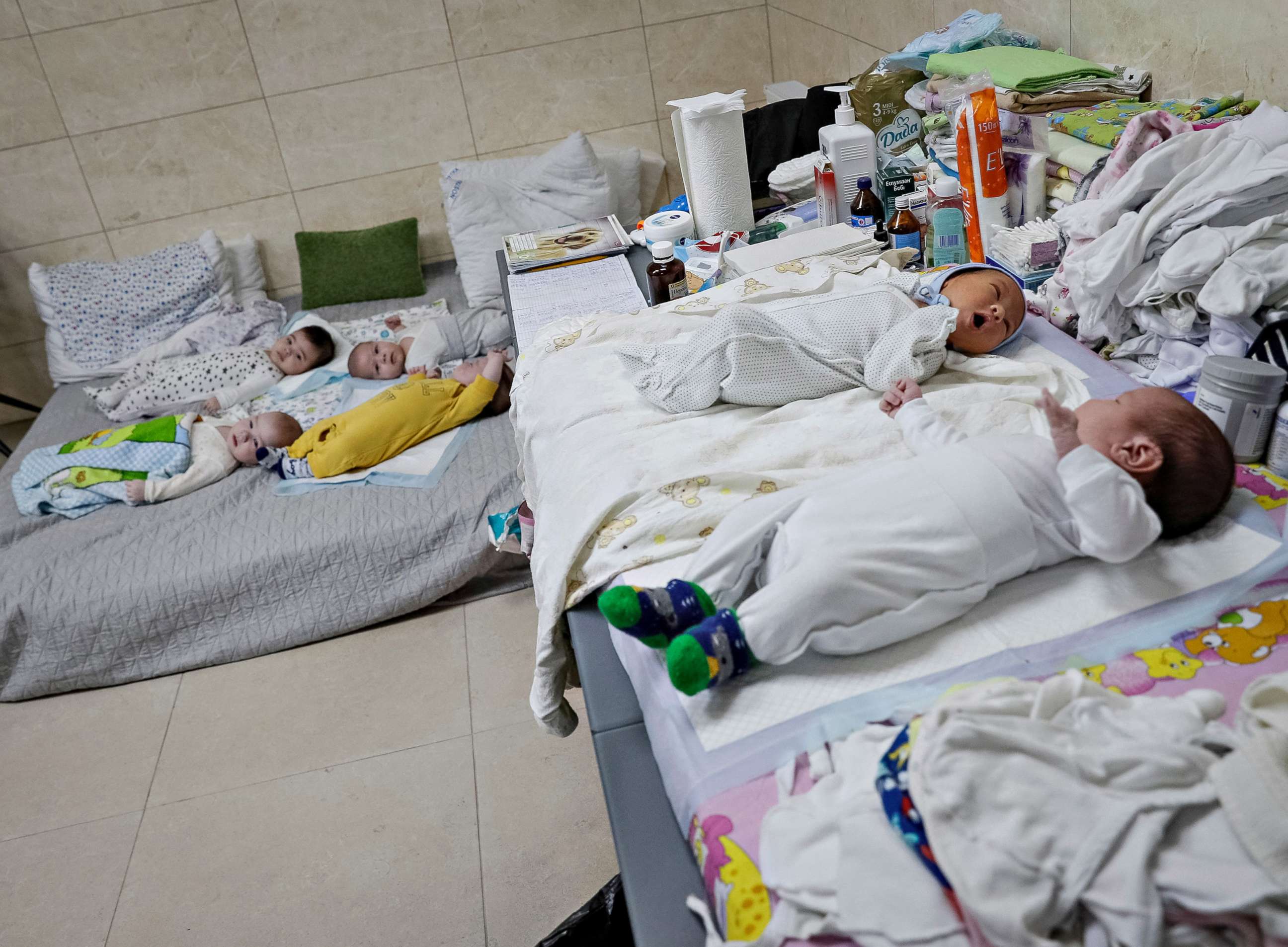
While some parents were able to evacuate their babies from Ukraine, many, including the babies in the shelter in Kyiv, remain in place as the attacks from Russia continue.
"We don't have time to rest now ... We try to take short naps, to swap. It is tough, tough," another nurse, Antonina Yefymovych, told Reuters. "It is terrifying indeed."
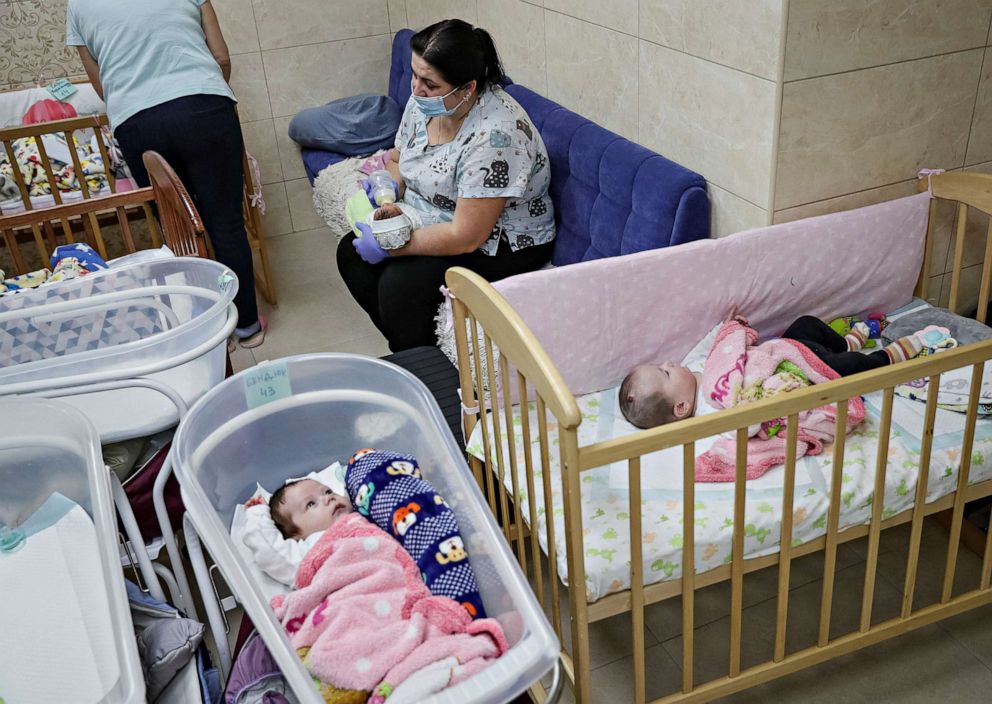
In recent years, Ukraine has become a popular location for foreign parents who want to hire a surrogate to carry their baby.
It is one of the few countries in the world where commercial surrogacy is allowed, according to Erica Horton, president and partner of Growing Generations, a United States-based surrogacy and egg donation agency.
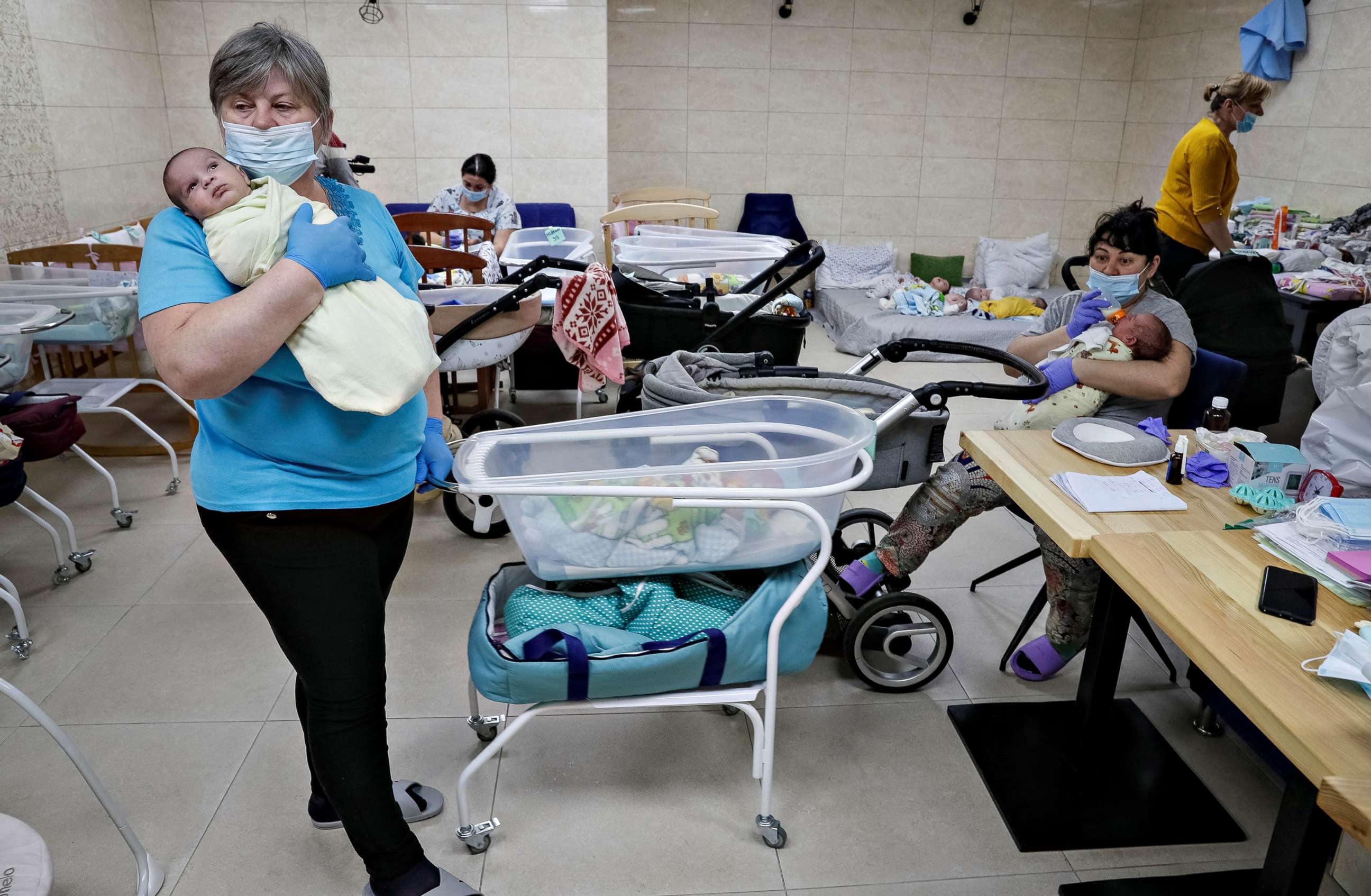
Because of its lower cost of living and lower cost of medical care, Ukraine is also one of the most cost-effective surrogacy options in the world, Horton told "Good Morning America."
"Surrogacy in the United States at a minimum is probably going to cost someone between $100,000 and $150,000, and in Ukraine, from what I know, you're looking at maybe $50,000 to $60,000," she said. "That's a pretty big difference even if you factor in the cost of travel."
Horton said that as someone who works in the surrogacy industry, it is "heartbreaking" to see babies left behind and parents unable to get their children.
"We work with people every day who are going through this process, and it's already scary enough to trust another person to do one of the most important things in your life," she said. "Then to have something like this layered on top of that is devastating for the parents who care about their child and who, undoubtedly, care about the woman who put her hand up to help them have their child. It's very difficult to witness."



